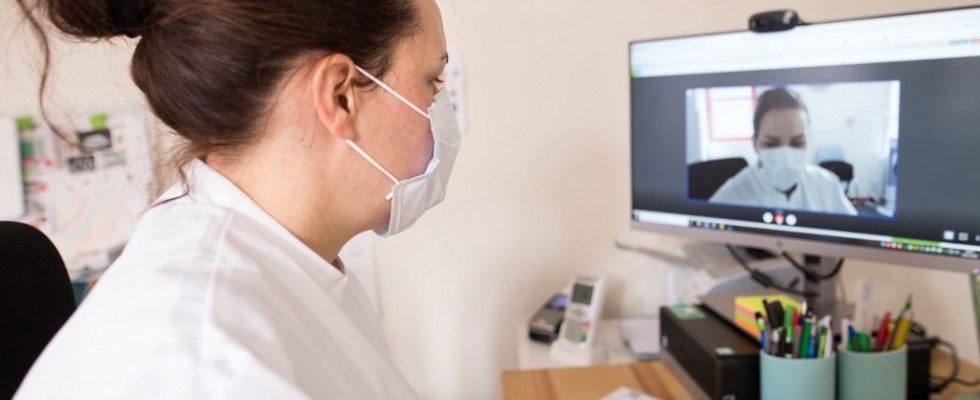How to fight against medical deserts? Here is an original solution: SNCF will deploy telemedicine spaces in around 300 stations by 2028, SNCF Gares et Connexions, a subsidiary of the railway group which manages nearly 3,000 French stations, announced on Friday.
The stations selected to benefit from the system will be “located in priority intervention zones (ZIP) and concerted development zones (ZAC), characterized by an insufficient provision of care and difficulty in accessing care”, i.e. 1 735 potential stations, explains in a press release SNCF Gares et Connexions. “Ten million people pass through stations every day and 90% of the population lives less than 10 km from a station,” underlined Raphaël Poli, general retail director at Gares et Connexions, in order to justify the relevance of the system.
The Covid-19 experience
To deploy this offer, the SNCF subsidiary chose the company Loxamed, created in 2020 during the Covid-19 pandemic and owned by the public works rental company Loxam and the company Capitello Med, specializing in connected medical solutions. Loxamed had already installed Covid-19 screening centers on the forecourts of major French stations at the end of 2020.
Initially, the telemedicine spaces will be installed in “boxes of 15 m2 on the station forecourts, during the work in the stations”, indicated Arnaud Molinié, president of Loxamed, while promising “comfortable places, welcoming, to take good care of patients in teleconsultation”.
A state-certified nurse will always be present on site and the patient will be “examined remotely by a doctor practicing on French territory”, according to SNCF Gares et Connexions.
Liberal nurses available
Loxamed will contact the regional unions of health professionals (URPS) in order to find independent nurses available to participate in the system and independent doctors “who could free up time for that”, detailed Arnaud Molinié.
The precise locations for setting up these telemedicine spaces will be decided in consultation with the Regional Health Agencies (ARS) and local authorities.
It will be possible to make an appointment on site or online via traditional appointment booking platforms such as Doctolib. “The price will be the same as that of a classic sector 1 consultation”, according to the press release, and the opening hours will be based on the “ebb and flow of travelers” in the designated stations.
